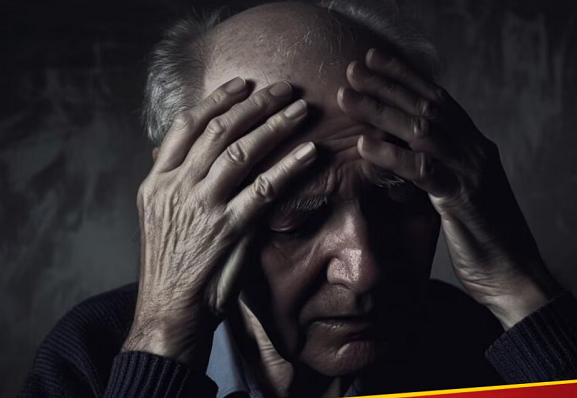Stroke not only affects the body, but can also have a deep impact on the mind. Many people may have to face depression after stroke. But do you know, when does this depression after stroke mostly occur? Let us know about an interesting study, which has found the answer to this question.

According to a British study , 87.9% of cases of post-stroke depression occur within 5 years of the stroke. This study suggests that depression should be regularly checked during this period.
This study, which lasted for 18 years, found that the probability of depression after stroke was 59.4%. Of these, 33.4% cases occurred within 3 months of stroke and 54.6% cases occurred within 1 year. The lead researcher of the study, Dr. Lu Liu of King's College London, said that in most cases, depression occurs within 5 years after stroke. Therefore, after stroke, all patients should be regularly screened for depression for 5 years. However, depression can also start 3 to 6 months after the stroke.
What did the study find?
The study also found that among the patients who were found to have depression 3 months after stroke, 46.6% patients recovered in 1 year and 20.3% patients recovered in 2 years. But the relapse rate of depression was 66.7%, with most cases (94.4%) occurring within 5 years of recovery. Dr. Liu said that depression in stroke patients can persist for a long time even after recovery. The recurrence rate of depression in the general population is 42%, while in stroke patients this rate is 66.7%.
The researchers involved in the study conducted on 3864 stroke patients
said that there is little research on the long-term effects of depression after stroke. Additionally, they also found that very few comparative studies have been done between depression occurring immediately before and after stroke and between mild and severe depression. In this study, data of 3,864 stroke patients were taken from the South London Stroke Register of London, who were assessed for depression between January 1995 and July 2019. Of the patients included in the study, 55.4% were male, 62.5% were white and their average age was 68 years. The Hospital Anxiety and Depression Scale was used to assess depression.
The study found that the incidence of mild and severe depression was almost equal, but severe depression started sooner after stroke, lasted longer and recurred more quickly. Researchers involved in the study say that patients whose depression is more severe, require long-term treatment and care.
Photo Credits: Google










